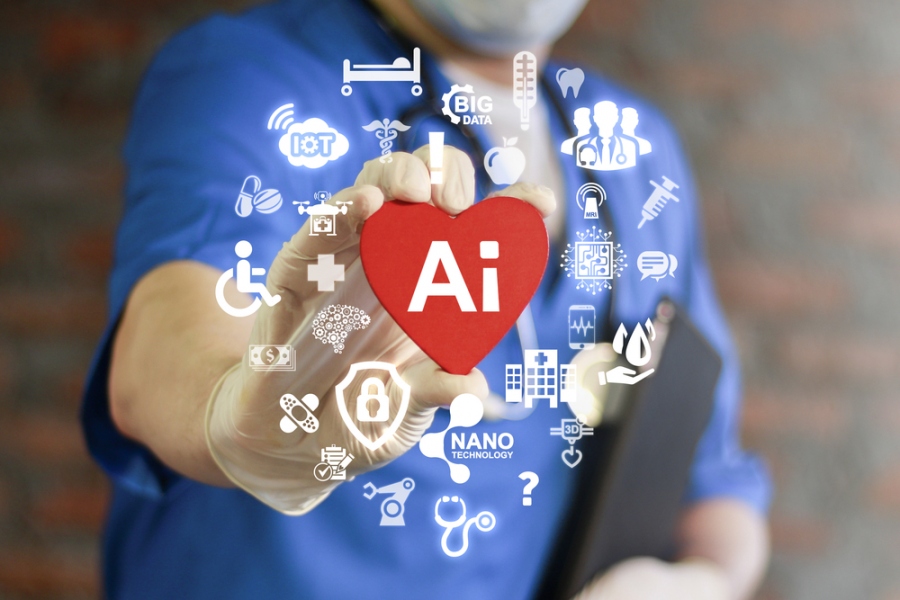5 Ways AI Is Reshaping The Future Of The Health Industry
Technology has certainly come a long way in aiding us in different aspects. For example, even in the health industry, AI technologies have vastly improved healthcare services and offered many solutions and innovations. And even in the future, we can expect AI to do even more for us. Here’s how AI is reshaping the future of this industry.
1. Much More Accessible Healthcare for Everyone
Because of the limited number of healthcare providers in developing nations, not everyone from those countries may have access to adequate healthcare and professionals.
Not to mention, those living in rural areas in those mentioned countries have it worse, as they barely even have hospitals or clinics to go to at all. But with Artificial Intelligence, the problems regarding the shortage of medical staff in developing nations might be addressed.
With Artificial Intelligence, we can develop different applications to examine and identify several medical conditions through AI imagery and the like. Anyone can then use this application without needing a health professional to be available on site.
In addition, the real-time transmission of information on the app among healthcare professionals and their patients will make communication much easier.
With virtual healthcare, those living in remote areas no longer have to worry about going so far as to gain access to proper healthcare. After all, access to universal healthcare is everyone’s right, and thanks to AI technologies, we might be a few steps closer to achieving accessible healthcare for everyone.
2. Improved Treatments Plans for Patients
AI is also well-known for its capacity to efficiently process thousands of information at impressive speeds. In the future, emerging AI technologies can give better assistance and diagnosis for patients. For instance, deep learning algorithms, next-level image scanning processes, and other methods can accelerate patient treatment.
With the speed of AI-processing technologies, more patients can be evaluated and treated than traditional means of giving assessments to patients. In addition, AI-powered medical tools and equipment will significantly help healthcare professionals in making better decisions.
These are due to the accurate and extensive information they will receive from these AI technologies.
3. Predictive Tools Which Can Show Early Signs of Disease Development
We already have trackers in our smartphones that detect the number of steps we take in a day. We also have wearable devices that are able to monitor our heart rates easily too. Since there are already existing apps that monitor our and store information about your health, it will be possible to create applications that can predict diseases developing in a person through collected data in the future too.
Such technology can aid healthcare providers in giving better assessments to their patients as well. After all, the collected data can be compared and analyzed accurately to anticipate developing diseases. If possible, they can also be prevented from developing entirely or worsening as soon as they’re identified.
4. Better Management and Security of Patient’s Health Records
Electronic health records have truly helped healthcare institutions in storing thousands of information about their patients. But of course, a lot of people still question the reliability and security of healthcare records stored on digital platforms.
But with AI technologies, security breaches and leakage of sensitive medical records can be prevented.
This can be done through real-time analysis of networks, prompt flagging of suspicious behavior within the network, and continuously detecting data patterns. In addition, they can also be programmed to conduct counter-attacks for online breaches for better protection.
5. Incorporating AI in Medical Tools and Equipment
Smart devices have become very useful nowadays. In the medical field, incorporating artificial intelligence with medical tools and equipment can help healthcare providers give better care for their patients too.
Smart devices help monitor patients. By improving their functionality through various AI-driven features, these smart devices can monitor and analyze these patients confined in ICUs 24/7. In addition, they can quickly alert medical staff of developing complications in patients confined in ICUs.
Wrapping Up
The possibilities are practically endless with technology. Therefore, we can definitely expect more technological advancements from artificial intelligence in the healthcare sector, especially as different people from the tech field continue to find ways to solve more of our ongoing problems.
With our NetSuite Partners, you can experience these technological possibilities, as we are committed to helping you manage the complexities of your business. Furthermore, with how technology is expected to progress and develop shortly, we can aid in giving you better solutions with the latest technology.

